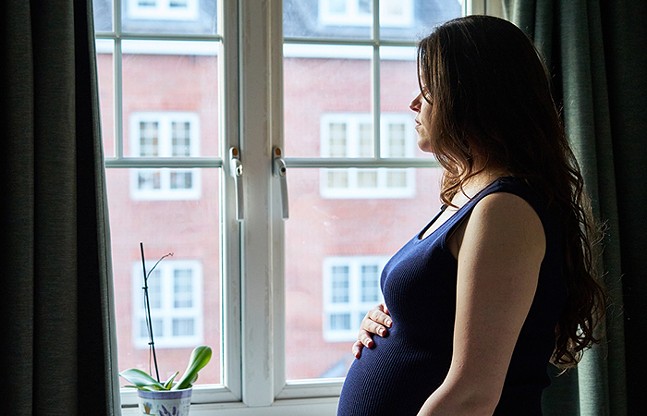For the last two decades, Pennsylvania has allocated tens of millions of federal welfare dollars to an anti-abortion group that runs a statewide network of crisis pregnancy centers sometimes using deceptive means to intervene in abortion plans.
In the aftermath of the recent Supreme Court ruling gutting federal protections for abortion rights, advocacy groups ramped up criticism of state funding to anti-abortion group Real Alternatives using federal dollars earmarked for preventing child hunger.
This year's state budget allocates more than $7 million to Real Alternatives, $1 million of which was diverted from the Temporary Aid for Needy Families (TANF) program.
Real Alternatives claims to offer “life-affirming pregnancy and parenting support services for women in need,” and is funded with both state and federal money.
According to the organization's president, Kevin Bagatta, “The mission of the program is to provide support that promotes childbirth rather than abortion from the moment of conception through 12 months after the birth of the baby.” He says their centers do not offer information on contraception or any medical services and do offer classes on parenting and abstinence.
The Women’s Law Project, a public interest law firm focusing on the rights of women, girls, and LGBTQ people statewide, is among Real Alternatives’ outspoken critics. In a recent press release denouncing the state budget, WLP co-director Amal Bass says Real Alternatives’ centers are “organizations that deceive, deter, and delay pregnant people who are seeking reproductive healthcare.”
“A budget is a statement of values. What does it say about Pennsylvania’s values that the state chose to invest millions of dollars into crisis pregnancy centers the day after anti-abortion state lawmakers convened in the middle of the night to advance a constitutional amendment to eliminate our reproductive rights?” Bass says.
Legally, TANF money is supposed to fund efforts that accomplish the following: Help “needy families” care for their children at home; promote job preparation, work, and marriage; prevent and reduce the incidence of out-of-wedlock pregnancies; and encourage the formation and maintenance of two-parent families.
Pennsylvania was the first state to use TANF money to fund crisis pregnancy centers, which it began doing in 2002, according to Real Alternatives, which maintains it is a lawful recipient of TANF funds.
“Former US Congressman Joe Pitts sought the funding from the U.S. Department of Health & Human Services for the Pennsylvania program, which has become a model for the rest of the nation. Wade Horn, then an assistant secretary at HHS, verified that the Pennsylvania program qualified for TANF,” Real Alternatives writes in an emailed statement to Pittsburgh City Paper.
Real Alternatives also directed City Paper to a video showing Lynn Johnson, a former health and human services official under the Trump administration, congratulating Real Alternatives on the success of their programs to “encourag[e] the formation of two-parent families,” and “promote work, job preparation, and marriage and encourage chastity and sexual integrity, thereby reducing the incidence of unexpected pregnancies and abortion.”
WLP also notes that Pennsylvania continues to fund Real Alternatives in the midst of allegations of financial misconduct.
“Pennsylvania’s diversion of $7,263,000 to Real Alternatives comes in the wake of multiple investigations that found evidence that Real Alternatives has misused public funds and a Commonwealth Court ruling highlighting the organization’s efforts to hide how they spend public money,” says the Women's Law Project.
In 2020, watchdog group Campaign for Accountability wrote an open letter to state officials requesting the termination of the state’s funding of Real Alternatives.
“RA appears to be exploiting its position administering the AAS Program in order to enrich its executives with taxpayer dollars, skim money intended for service providers, and misappropriate public funding earmarked for certain operational expenses, while simultaneously failing to effectively deliver the health services that it has agreed to provide to Pennsylvanians,” the letter reads.
Following this complaint, leaders of the state legislature’s Women’s Health Caucus asked AG Josh Shapiro to investigate the allegations of Real Alternatives' financial misconduct.
Real Alternatives did not respond to City Paper’s questions regarding the alleged misconduct.
Advocates and policymakers in other states like Indiana continue to argue against allocating public money to Real Alternatives on the basis of the alleged financial misconduct. Michigan Gov. Gretchen Whitmer dropped Real Alternatives from her state's 2020 budget. So far, WLP says, Pennsylvania has given Real Alternatives more than $144 million.
A local anti-hunger organization says TANF funding for Real Alternatives is just one of the welfare program’s many flaws.
"Families in deep poverty are forced to jump through hoops to get a meager amount of cash assistance — an amount state legislators have refused to increase for 30 years,” Emily Cleath, communications coordinator at Just Harvest, tells City Paper. “Having a child can drive people into poverty or deepen their economic crises, and children are more at risk of poverty than any other segment of our community. It's outrageous that the majority party is diverting funds from a program that could help those families to their other agendas, including creating barriers to abortion care."


